A new electric motor for drones has been developed at the Advanced Engineering School of the Moscow Aviation Institute. They can be equipped with various types of propeller-driven unmanned aerial vehicles (UAVs).


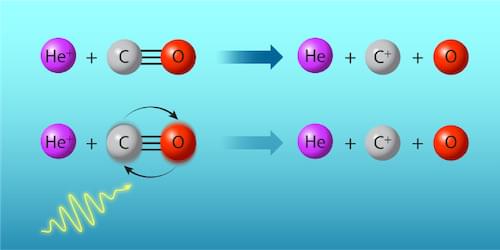
The heating effect of microwaves has long been used to accelerate reactions. A new experiment shows that microwaves can also excite molecules into a less reactive state.
According to Arrhenius’ law, heating increases the energy of molecules so that more of them can overcome the activation barrier and undergo a chemical reaction. One way to deliver heat is via microwave radiation. Since its early use in chemical synthesis, scientists have noticed that microwave-induced reactions often proceed differently compared with ones enhanced with oil baths and other traditional heating methods. This finding has led to ongoing speculation and debate—and even controversy—about the existence of microwave effects beyond heating [1]. Now Valentina Zhelyazkova of the Swiss Federal Institute of Technology (ETH) Zurich and her collaborators have demonstrated that microwaves can both speed up and slow down chemical reactions [2]. The discovery provides clear evidence of the nonthermal influence of microwaves on chemical processes. It also opens a path toward controlling reactions and understanding them more deeply.
In their investigation Zhelyazkova and her collaborators manipulated the rate of the gas-phase reaction between positively charged helium ions (He+) and carbon monoxide (CO) molecules: He++ CO → He + C++ O. According to so-called capture theory, the reaction’s rate depends on the rotational states of CO, whose quantized energies lie within the microwave band (Fig. 1). The experiment began with the preparation of separate supersonic beams of He atoms and CO molecules via high-pressure expansion into vacuum. The CO molecules were initially in the rotational ground state. By applying a precisely timed microwave pulse before the reaction, the researchers excited a fraction of the population to the first rotationally excited state, which is less reactive than the ground state. The fraction that was excited could be fine-tuned by changing the duration of the microwave pulse.
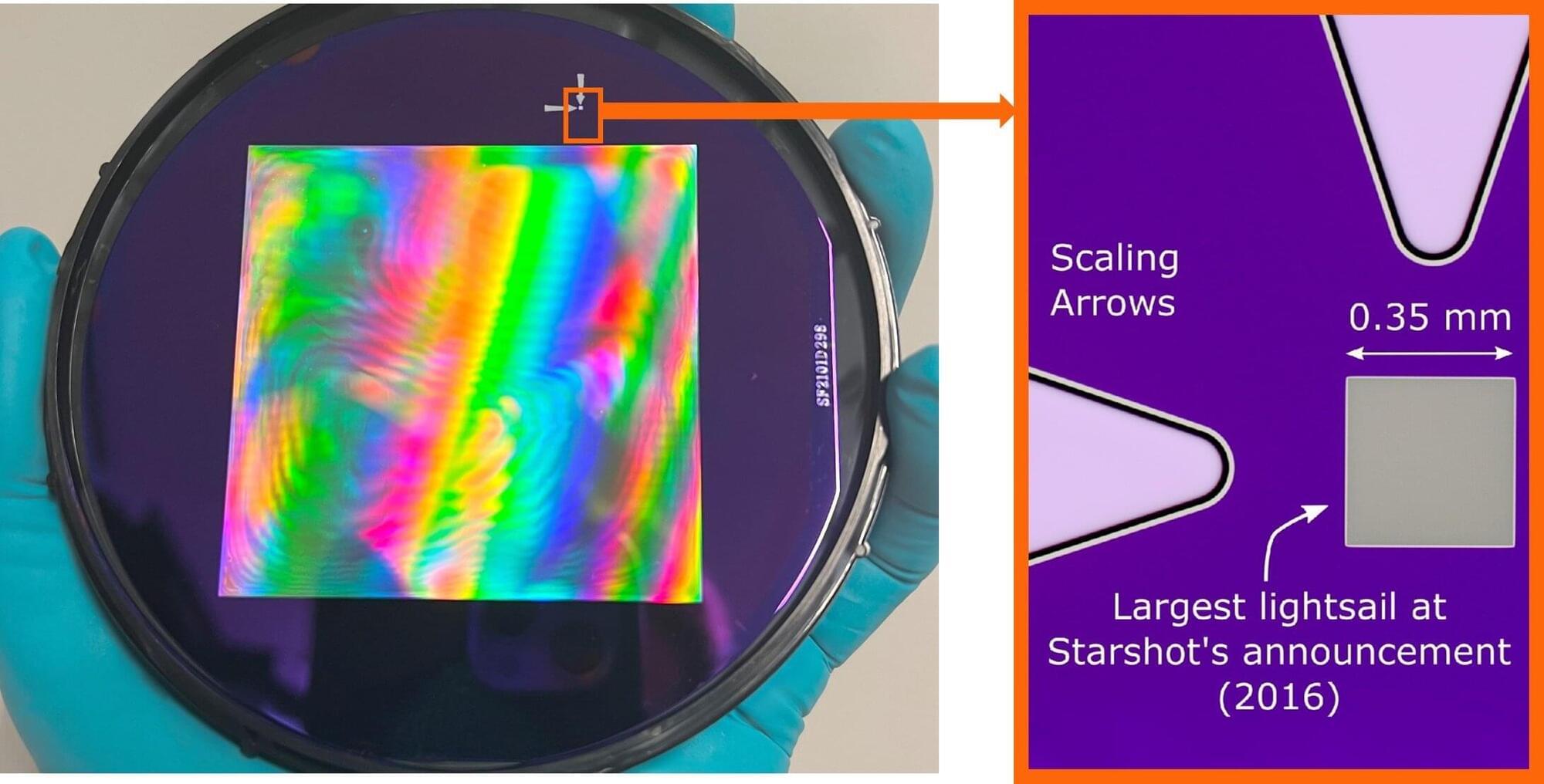
Researchers at TU Delft and Brown University have developed scalable nanotechnology-based lightsails that could support future advances in space exploration and experimental physics. Their research, published in Nature Communications, introduces new materials and production methods to create the thinnest large-scale reflectors ever made.
Lightsails are ultra-thin, reflective structures that use laser-driven radiation pressure to propel spacecraft at high speeds. Unlike conventional nanotechnology, which miniaturizes devices in all dimensions, lightsails follow a different approach. They are nanoscale in thickness—about 1/1000th the thickness of a human hair—but can extend to sheets with large dimensions.
Fabricating a lightsail as envisioned for the Breakthrough Starshot Initiative would traditionally take 15 years, mainly because it is covered in billions of nanoscale holes. Using advanced techniques, the team, including first author and Ph.D. student Lucas Norder, has reduced this process to a single day.
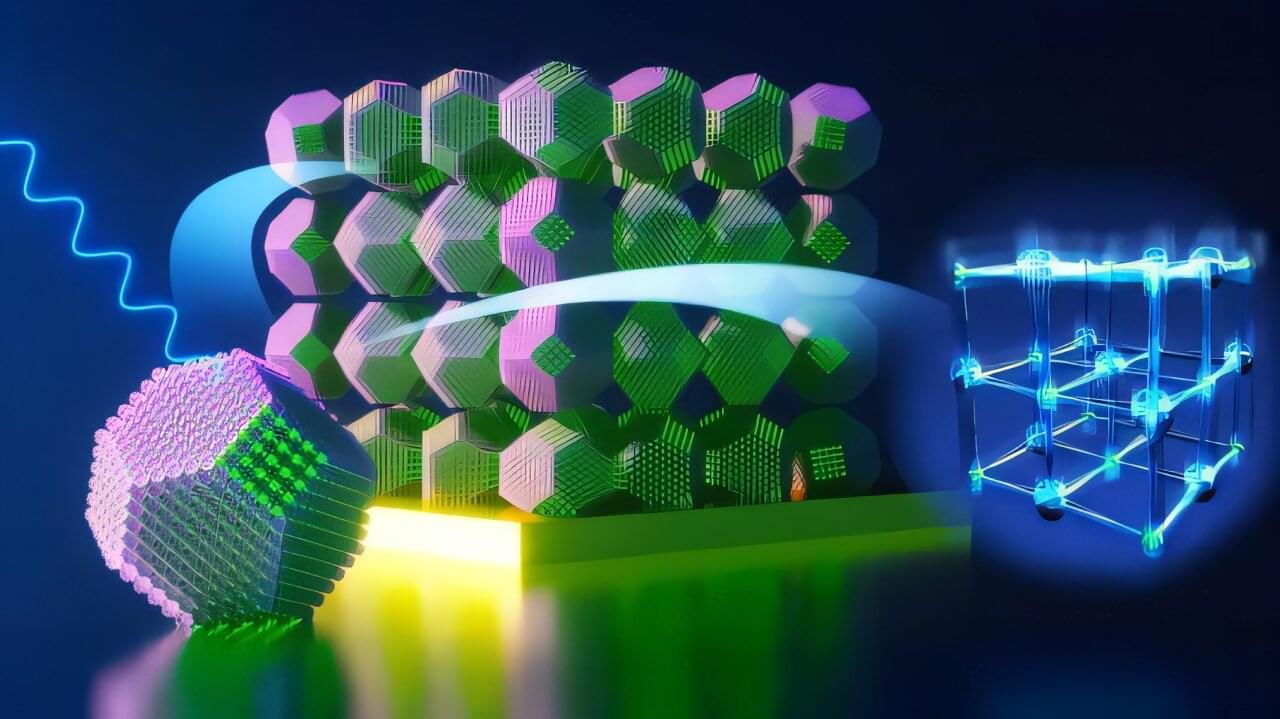
Imagine building a Lego tower with perfectly aligned blocks. Each block represents an atom in a tiny crystal, known as a quantum dot. Just like bumping the tower can shift the blocks and change its structure, external forces can shift the atoms in a quantum dot, breaking its symmetry and affecting its properties.
Scientists have learned that they can intentionally cause symmetry breaking—or symmetry restoration—in quantum dots to create new materials with unique properties. In a recent study, researchers at the U.S. Department of Energy’s (DOE) Argonne National Laboratory have discovered how to use light to change the arrangement of atoms in these minuscule structures.
Quantum dots made of semiconductor materials, such as lead sulfide, are known for their unique optical and electronic properties due to their tiny size, giving them the potential to revolutionize fields such as electronics and medical imaging. By harnessing the ability to control symmetry in these quantum dots, scientists can tailor the materials to have specific light and electricity-related properties. This research opens up new possibilities for designing materials that can perform tasks previously thought impossible, offering a pathway to innovative technologies.
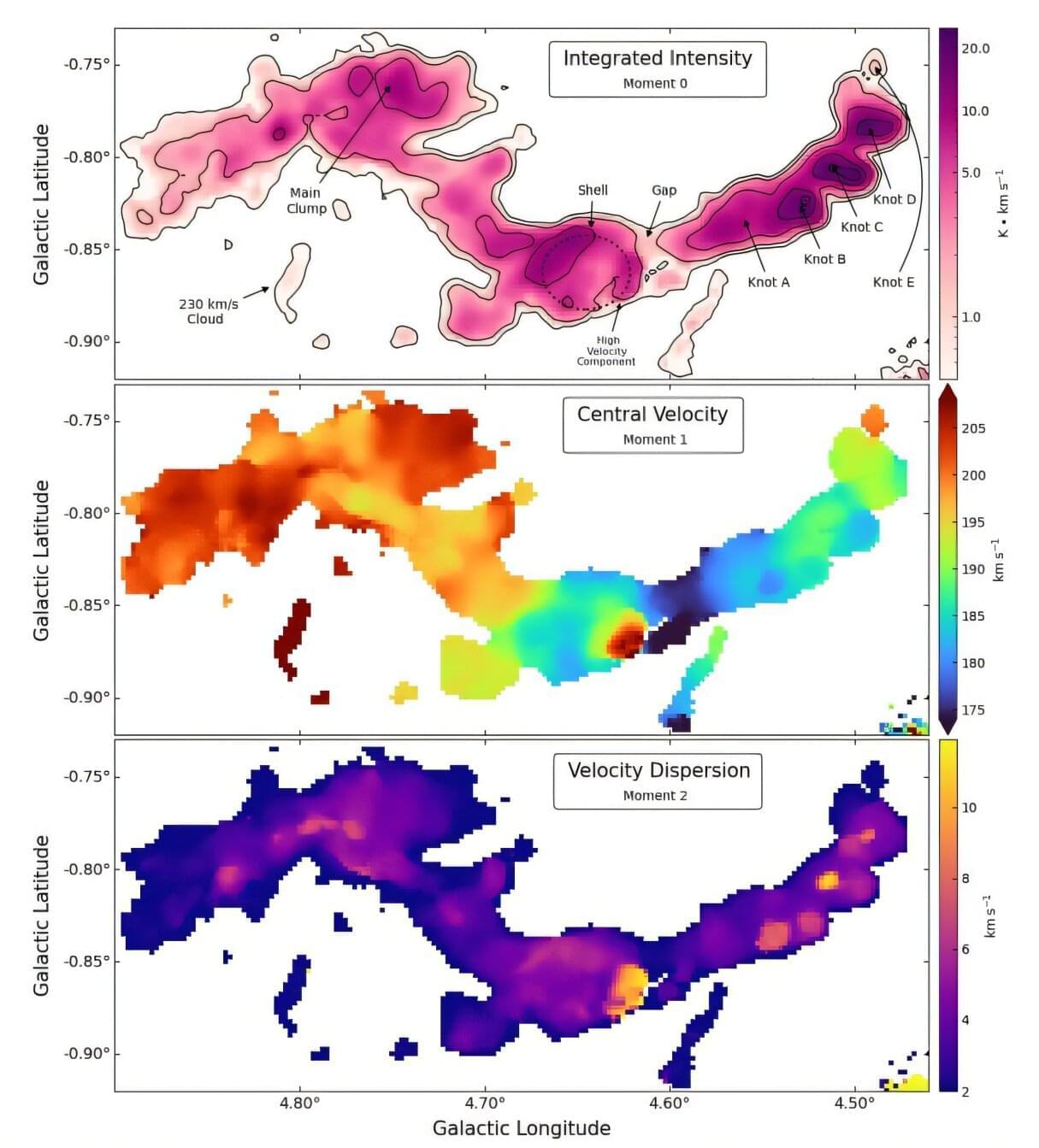
Using the Green Bank Telescope (GBT), astronomers have detected a new giant molecular cloud in the Milky Way galaxy. The newfound cloud has a size of nearly 200 light years and its mass is estimated to be some 160,000 solar masses. The finding was reported in a paper published March 18 on the arXiv preprint server.
Molecular clouds are huge complexes of interstellar gas and dust left over from the formation of galaxies, composed mostly of molecular hydrogen. Molecular clouds with masses greater than 100,000 solar masses are called giant molecular clouds (GMCs). In general, GMCs are 15–600 light years in diameter and are the coldest and densest parts of the interstellar medium.
GMCs are gas reservoirs where most star formation takes place. Therefore, studying their lifecycle and characteristics is crucial to advancing our knowledge about the formation and evolution of galaxies.

Does the proton decay? While this was a famous prediction of Grand Unified Theories (GUTS) developed in the 1970s and 1980s, experimentalists have ruled it out—or rather, put lower limits on its mean lifetime of about 1034 years. That’s 20 orders of magnitude greater than the age of the universe.
But two physicists have been wondering: Could the lifetime be different in other places and at other times? Could the proton have decayed faster in the past? Could it decay faster somewhere else in the universe? They have reimagined some physics processes assuming the proton does decay and calculated possible lifetimes of around 1018 years. That’s only eight orders of magnitude beyond the universe’s lifetime. Their work was recently published in Physical Review D.
“People had previously asked various questions of the type, ‘Are the fundamental physics parameters measured on the Earth the same elsewhere in the universe?’” said Peter Denton, a co-author at Brookhaven National Laboratory on Long Island, New York in the U.S. “One case that hadn’t been investigated was the stability of the proton. Earth experiments show that the proton is incredibly stable, but those only apply here, in our part of the galaxy, and now, over the last several decades. What if proton decay depended on time or space?”
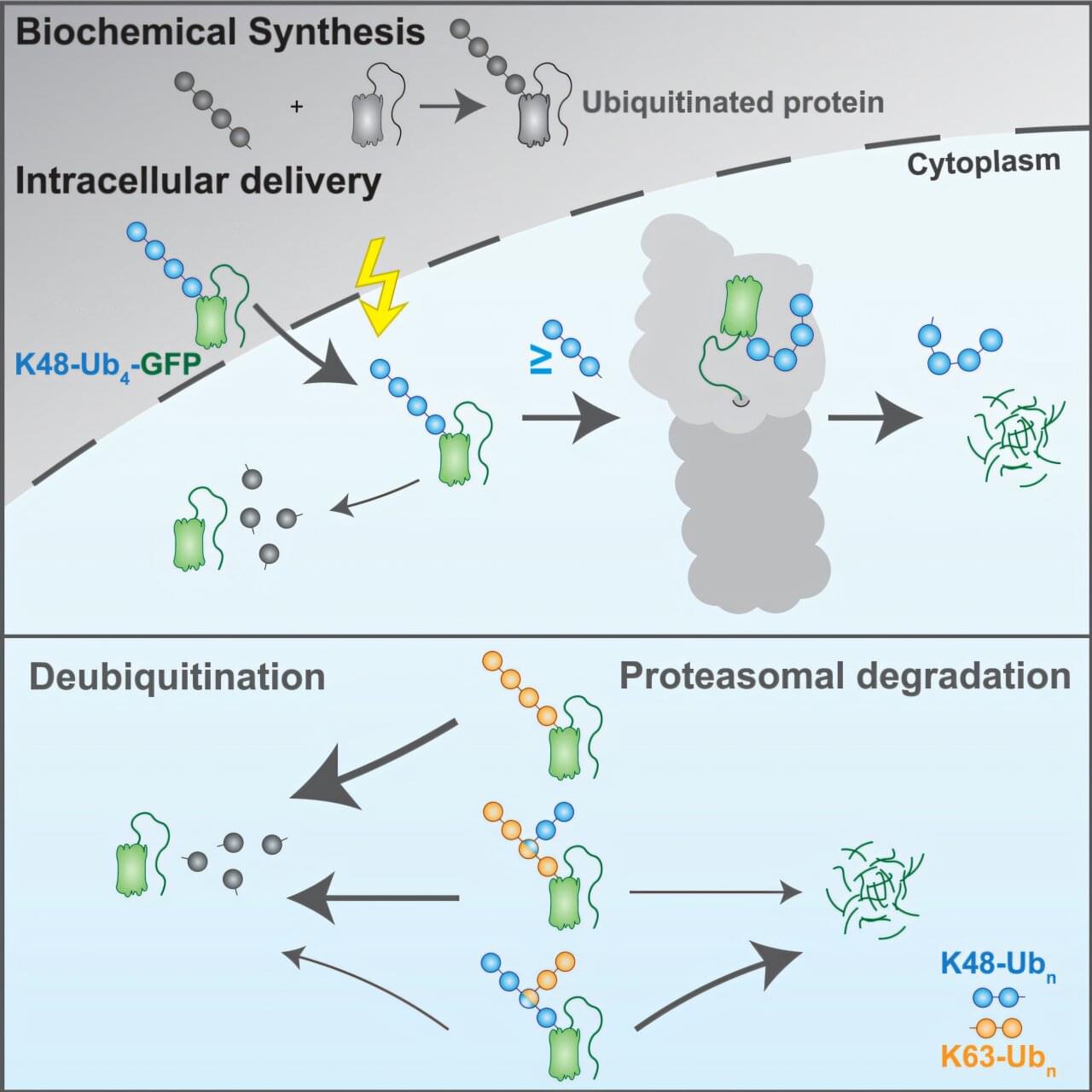
Ubiquitin marks proteins for degradation, whereby ubiquitin molecules can be combined in different types and numbers forming different chains. Researchers at the Max Planck Institute of Biochemistry (MPIB) have developed the new UbiREAD technology to decode the various combinations of ubiquitin molecules—the ubiquitin code—which determine how proteins are degraded in cells.
Using UbiREAD, scientists label fluorescent proteins with specific ubiquitin codes and track their degradation in cells. The study, published in Molecular Cell, revealed which ubiquitin code can or cannot induce intracellular protein degradation.
Proteins are the building blocks of life, maintaining cellular structure and function. However, when proteins become damaged, misfolded, or obsolete, they can lead to a range of diseases, from Alzheimer’s and Parkinson’s to cancer and muscular dystrophy. To prevent this, cells have developed a sophisticated system to mark unwanted proteins for degradation with a small protein called ubiquitin.
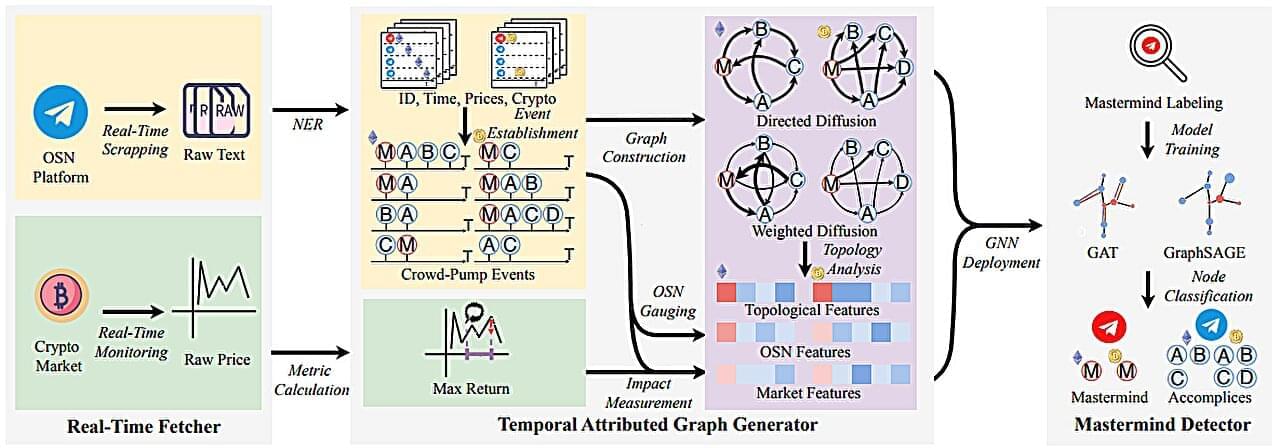
A team of computer scientists and financial specialists at University College London has developed a tool to track the coordination efforts of pump-and-dump crypto coin scheme manipulators. They have published a paper on the arXiv preprint server describing their tool called Perseus, its purpose and how it works.
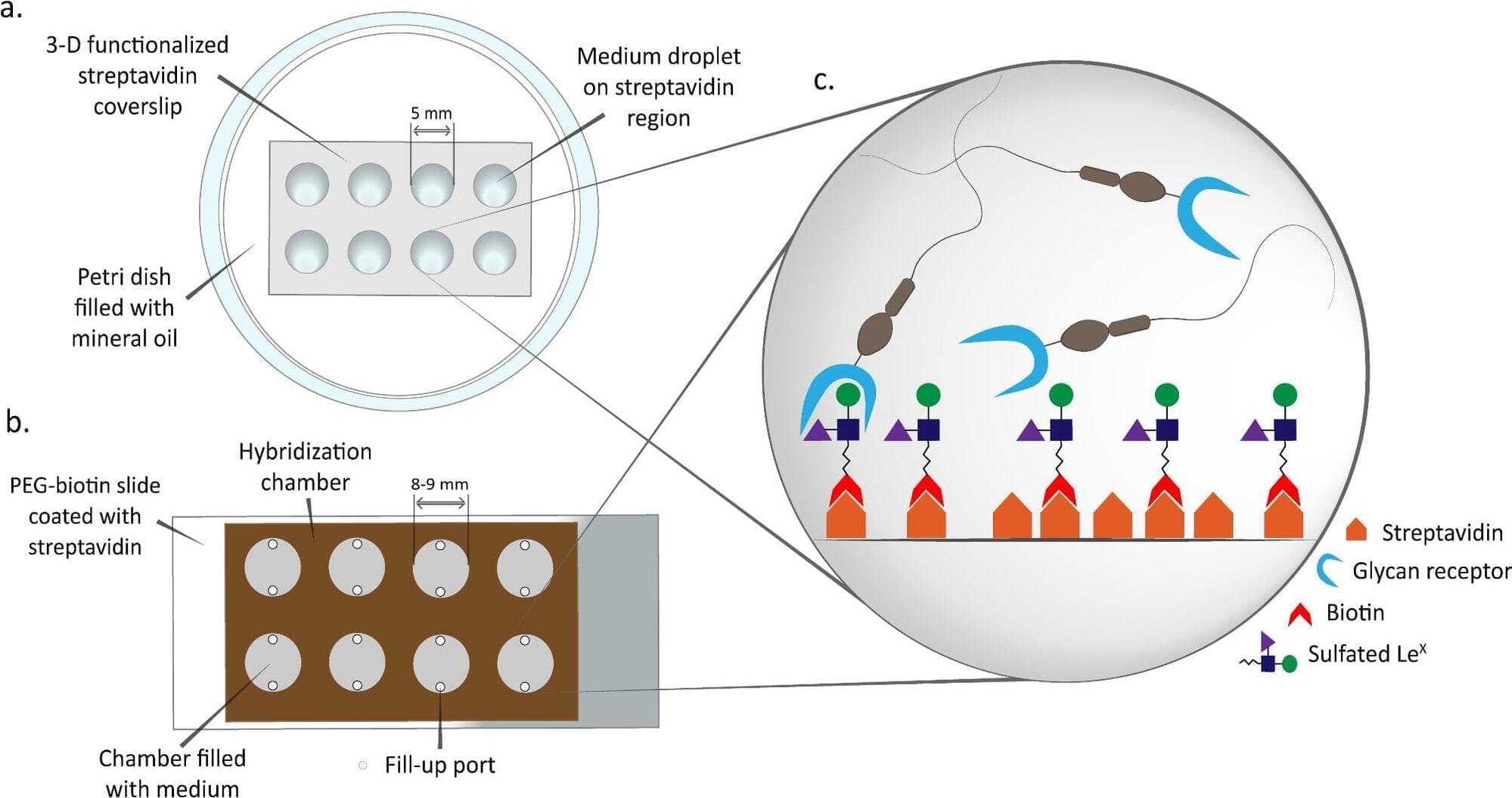
The success of in vitro fertilization depends on many factors, one of which is sperm viability. A recent study from the University of Illinois Urbana-Champaign documents a new way to select viable sperm and prolong their viability in the laboratory, reducing one source of variability during the process. The work is published in the journal Scientific Reports.
“The fallopian tube in women, or the oviduct, has an ability to lengthen sperm lifespan that, until now, we couldn’t recreate in IVF. In 2020, we discovered that complex sugars called glycans are the components of the oviduct that can bind and store sperm and keep them alive,” said senior study author David Miller, professor in the Department of Animal Sciences, part of the College of Agricultural, Consumer and Environmental Sciences at Illinois.
Miller’s group collaborated with chemists to test hundreds of oviduct glycans for their ability to bind pig sperm, settling on one called sulfated Lewis X trisaccharide, or suLeX, for further testing. They focused on pig sperm not only as a proof of concept for future human studies, but also because animal agriculture relies on IVF, too. In pig IVF, multiple sperm often fertilize single eggs, resulting in inviable embryos. The hope with using glycans was that fewer free-swimming sperm would approach and fertilize eggs simultaneously.
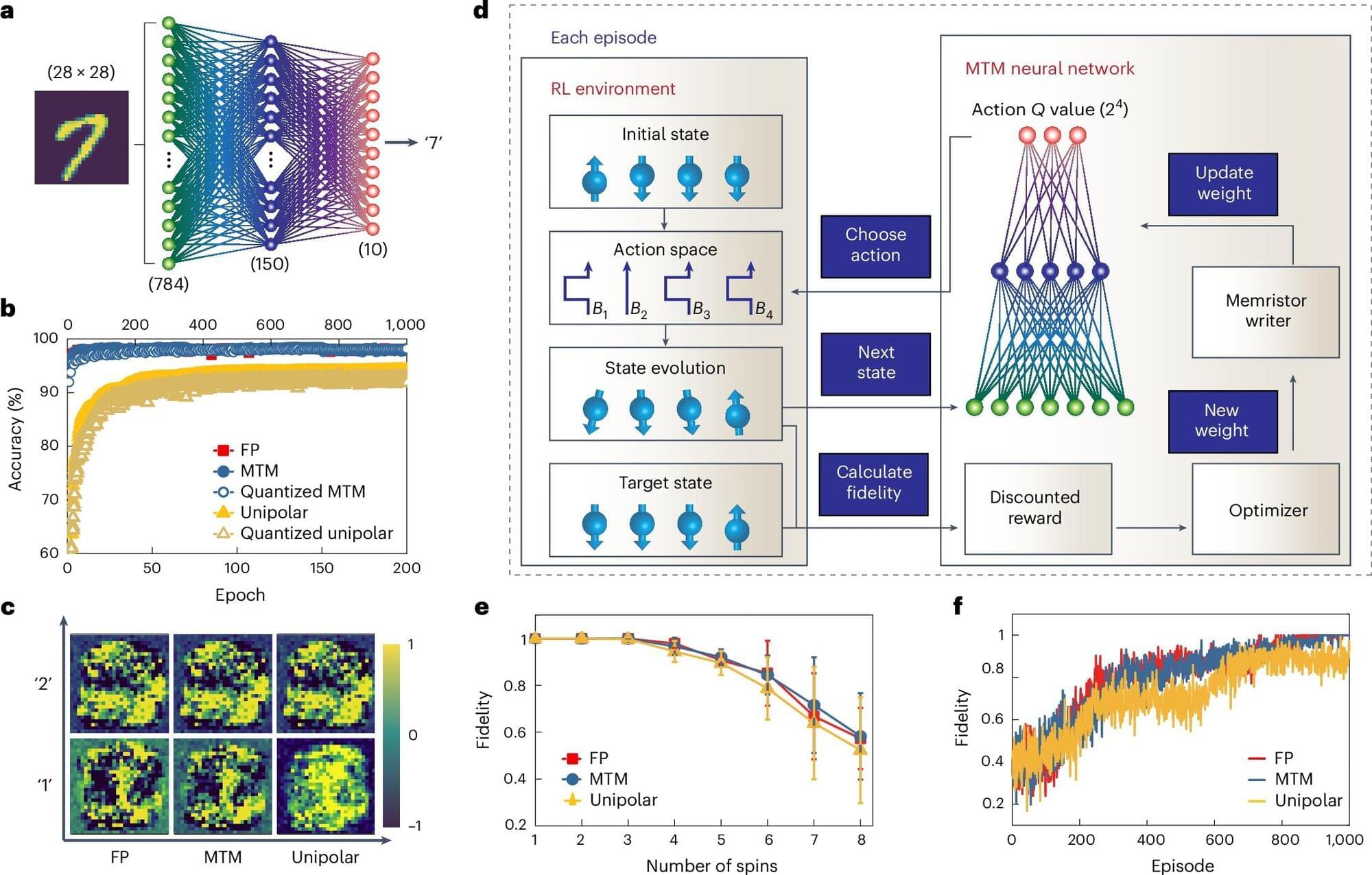
Scholars at the School of Engineering of the Hong Kong University of Science and Technology (HKUST) have unveiled an innovation that brings artificial intelligence (AI) closer to quantum computing—both physically and technologically.
Led by Prof. Shao Qiming, Assistant Professor at the Department of Electronic and Computer Engineering, the research team has developed a new computing scheme that works at extremely low temperatures. As a critical advancement in quantum computing, it can significantly reduce latency between artificial intelligence (AI) agents and quantum processors while boosting energy efficiency. The solution was made possible by utilizing a special technology known as magnetic topological insulator Hall-bar devices.
This latest invention addresses a major challenge concerning the operational environment and hardware requirements of quantum computers, amid growing interest in the amalgamation of quantum computing—widely seen as the future of high-speed and high-efficiency computing, with artificial intelligence—a fast-evolving technology.